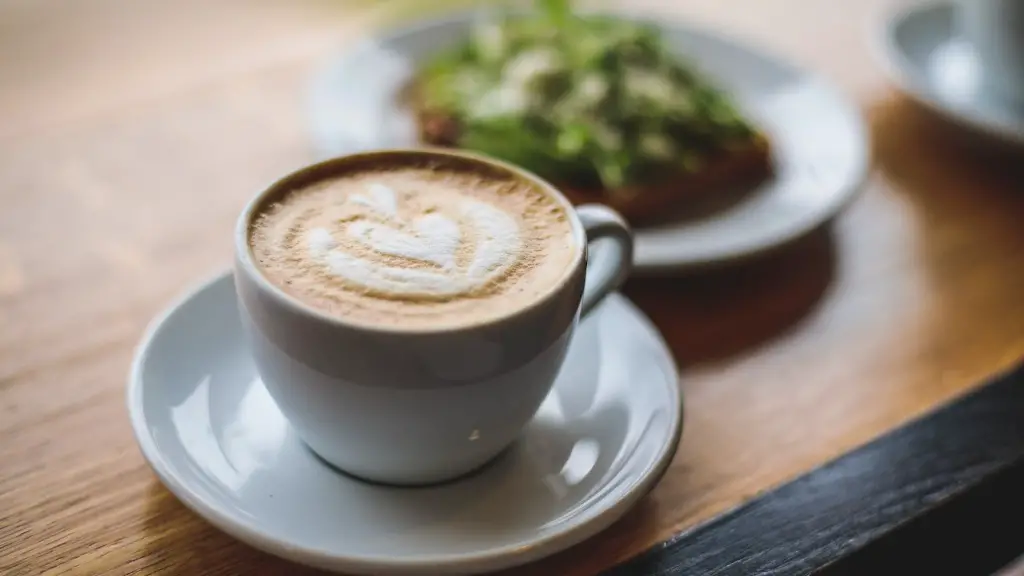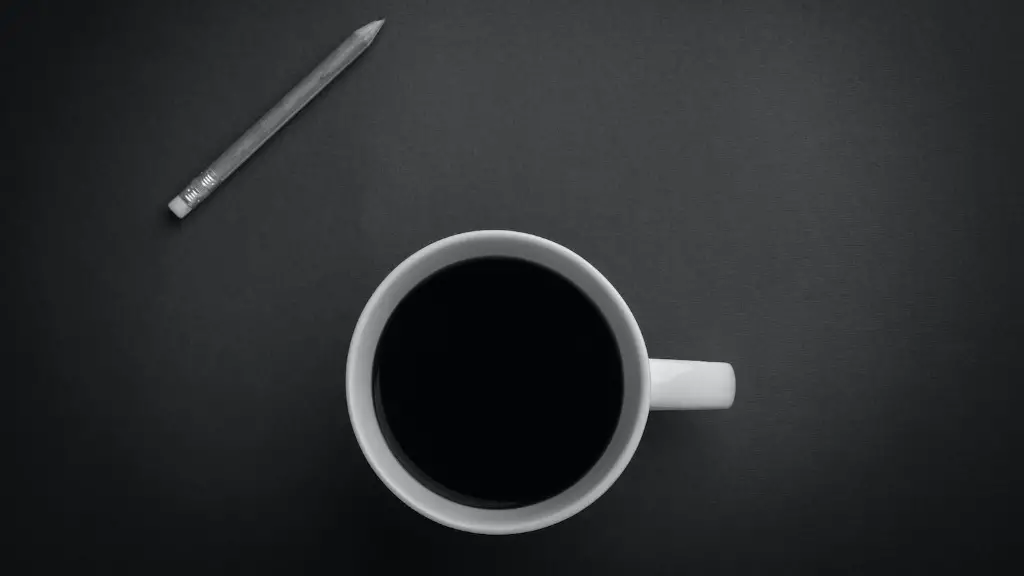The debate over whether it is okay to drink coffee after taking medicine continues to be a hot topic in the health community. While many claim that the combination can be dangerous, there are those who strongly argue for its allowances. In this article, we will dive deep into the matter to analyze the potential risks and benefits of including coffee in a medication regimen.
Caffeine is an active ingredient found in many over-the-counter and prescription medicines. For example, some cold remedies and pain killers contain this stimulant. Thus, patients who take these drugs must be aware of the impact of adding a cup of coffee to the equation. Caffeine acts as a stimulant to increase brain activity, enhance alertness and reduce fatigue. Therefore, it may counteract the desired sedative effects of certain medicines, such as sleeping pills. On the other hand, for some medications, such as asthma medications, the addition of caffeine may yield positive outcomes by improving air passage.
From a medical standpoint, the potential dangers of combining coffee with medication should not be ignored. In extreme cases, excessive consumption of caffeine may lead to negative side effects, such as hypertension and insomnia. To make matters more complicated, some believe that the effects of caffeine can remain in the bloodstream for up to twelve hours, meaning that there is a chance that the effects of the medicine may continue even when consumption of coffee has stopped. Due to these risks, it is recommended that anyone taking any type of medication consult with their doctor or pharmacist before adding coffee to the mix.
Although there are risks associated with drinking coffee after consuming medicine, there are some benefits worth considering. Caffeine has long been linked to cognitive improvements, including better focus and performance on tasks. Therefore, consuming coffee after taking certain medications may offer welcome boosts in productivity and mental energy. It is also important to note that recent studies have highlighted the potential benefits of coffee on long-term health, including boosting the immune system and reducing heart disease.
Overall, it is important to assess the risks and benefits of drinking coffee after consuming medicine. As noted by the American Medical Association, there can be potential adverse effects of taking coffee in combination with certain medications. However, there may also be positive outcomes, particularly with regards to cognitive functioning. Therefore, anyone considering drinking coffee after taking medication should be aware of the possible impacts and seek advice from a medical professional.
The Effects of Mixing Coffee with Painkillers
When it comes to medications, one of the most controversial combinations is coffee with painkillers. Painkillers, such as opioid-based drugs, work by blocking the pain signals in the brain while reducing inflammation. If a person is taking such a medication, it is important to consider the consequences of adding coffee to the mix. Generally speaking, the use of coffee with these medications may increase their efficacy and duration of action due to its stimulant-like effects. However, the use of coffee may also reduce the success of the medication, as its caffeine content is known to reduce the levels of these drugs in the bloodstream.
Additionally, there are some potential side effects that could arise from the combination of coffee and painkillers. Excessive caffeine intake may lead to heightened sensations of stress and alertness, further exacerbated by the use of painkiller medications. In some cases, there may be a synergistic effect when taking coffee and painkillers together, resulting in an increased risk of addiction and tolerance. Thus, it is best to consult with a healthcare provider before taking coffee in combination with painkillers.
To make an informed decision, those suffering from chronic pain should weigh the pros and cons of taking coffee with pain medications. From a medical standpoint, the risk of side effects and addiction should be taken into account. On the other hand, for some individuals, the stimulant-like effects of coffee may offer temporary relief of pain symptoms.
The Impact of Coffee with Allergy Medications
Allergy medications are designed to soothe allergies and irritations in the body by blocking the release of histamine in the body. A common side effect of allergy medications is drowsiness, which is usually countered with the consumption of coffee. So, is it safe to drink coffee after taking allergy medication?
Caffeine is known to interact with allergy medications, such as antihistamines and decongestants, by increasing their effectiveness in the body. In some cases, this could mean faster relief, but in other cases, it could have the opposite effect. Additionally, the use of coffee may counter the drowsiness caused by the drugs and even lead to further aggravation of the symptoms.
Ultimately, it is important to understand the nature of the medication and assess the risks of taking coffee with it. For those taking decongestants, drinking a cup of coffee may be beneficial to reduce the pressure in the nasal passages. For those who are prescribed antihistamines, the effects of coffee may be positive or negative. In some cases, the combination of caffeine and antihistamines causes heightened alertness and alertness.
Therefore, it is best to consult with a doctor before deciding whether it is safe to drink coffee after taking allergy medication. Additionally, it is important to be mindful of the amount of coffee taken, as it can cause dehydration and further aggravate allergy symptoms.
The Benefits of Combining Coffee with Antibiotics
Another common medication that can be consumed in combination with coffee is antibiotics. Antibiotics work by killing harmful bacteria and preventing infections in the body. But, what are the consequences of mixing coffee with antibiotics?
In general, drinking coffee after taking antibiotics is not recommended because it can reduce the absorption of the drug. Coffee is known to interfere with the function of antibiotics by blocking the enzymes that are responsible for their absorption in the body. This, in turn, can reduce the effectiveness of the medication and prolong the recovery process. Therefore, it is best to abstain from drinking coffee for at least two hours after taking antibiotics.
That said, there are some cases where the combination of coffee and antibiotics can be beneficial. For example, caffeine can help to reduce the nausea and headaches that are associated with some antibiotics. Additionally, caffeine has an energizing effect, which can help those experiencing fatigue due to the medication.
When taking antibiotics, it is important to check with a medical professional to gain a better understanding of the risks and benefits of drinking coffee. This can help to ensure that the right decision is made for the individual’s needs and health.
General Recommendations of Coffee Consumption with Medicines
In general, the effects of drinking coffee after taking medications must be approached on a case-by-case basis. The ingredients, doses, and potential side effects of each medication should be taken into account. Many doctors and pharmacists now advise patients on the potential impacts of consuming coffee with their medications.
It is also important to establish an understanding of what constitutes a safe amount of coffee to be consumed with medication. Generally, the American Heart Association advises a limit of four cups of coffee per day for healthy adults. However, for those taking medication, it is recommended to reduce this amount to two or three cups
Given the potential side effects of mixing coffee with medication, it is best to exercise caution and seek advice from a medical professional. Each person should be aware of the effects of their medications and the potential outcomes of introducing coffee into the equation. Additionally, if any adverse effects are experienced, they should be reported to a doctor as soon as possible.
The Problems with Mixing Coffee with Blood Pressure Medicines
Blood pressure medications are designed to lower blood pressure levels in the body. When combined with coffee, the effects of these drugs can be impacted, leading to unpredictable side effects. Therefore, those taking blood pressure medications should be mindful of the potential risks associated with drinking coffee.
As aforementioned, caffeine is known to increase alertness, so it is possible that the combination of coffee and blood pressure medications may lead to increased levels of anxiety. Furthermore, caffeine can also cause the heart rate to rise, which may be of further concern for those taking such medications. Additionally, some studies have highlighted the link between excessive coffee consumption and a greater risk of stroke.
It is important to note that the effects of coffee and blood pressure medicines often depend on the individual’s health, body weight, and the type of the medications being taken. Therefore, those on blood pressure medications should carefully consider the benefits and risks of drinking coffee. Those who are unsure should consult a healthcare provider before ingesting any caffeine.
Risks of Drinking Coffee with Depression Medications
Depression medications are designed to help a person cope with the symptoms of depression, such as persistent sadness, low mood and lack of motivation. As such, it is recommended to be mindful of the potential risks of taking coffee with such medications.
Caffeine is known to act as a stimulant, increasing alertness and focus in those who consume it. However, when mixed with depression medications, these effects may be amplified and even lead to the development of symptoms such as agitation and restlessness. Additionally, caffeine can interfere with some medications, reducing their efficacy.
Ultimately, it is important to assess the potential risks and benefits of taking coffee with depression medications. Generally, it is recommended to abstain from drinking coffee as it is known to cause mood swings and anxiety. If a person is considering taking coffee with their depression medications, then it is best to consult a medical professional first.
When is it Safe to Drink Coffee After Taking Medication?
In general, it is best to wait at least an hour after taking medication before drinking coffee. This allows for the medication to be absorbed into the body, thereby reducing the risk of interference and side effects. Those who plan on taking more than one type of medication should always consult a doctor to gain an understanding of the potential impacts of adding coffee to the mix.
It is also important to note that caffeine can remain in the bloodstream for up to 12 hours. As such, it is important to be mindful of the quantity of coffee ingested to prevent over-stimulation. Additionally, it is best to consult a doctor or pharmacist regarding the type of medications being taken to assess the risks of combining them with coffee.
In conclusion, the combination of coffee and medication is a complex one. It is important to be aware of the potential risks and benefits associated with such a combination to ensure that it is safe and the desired results can be achieved. By understanding the effects of medications and being mindful of the quantity of coffee ingested, it can be possible to reap the potential benefits and remain safe.





